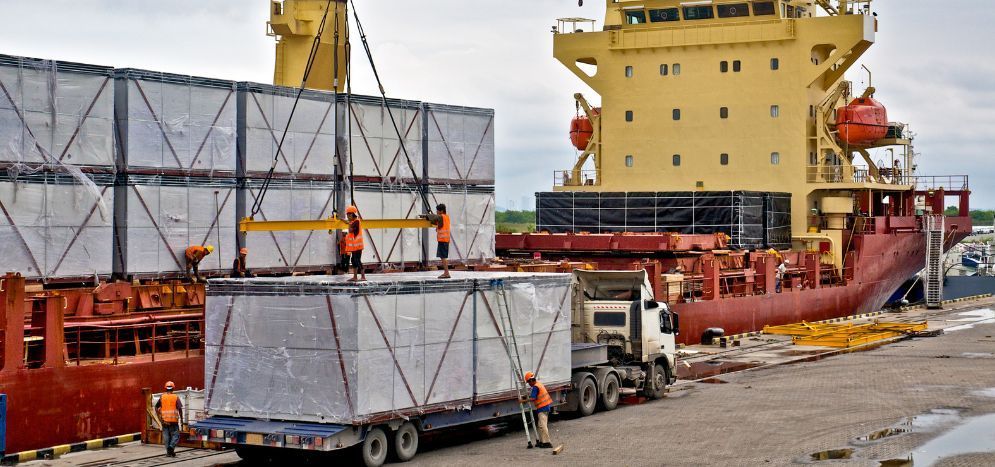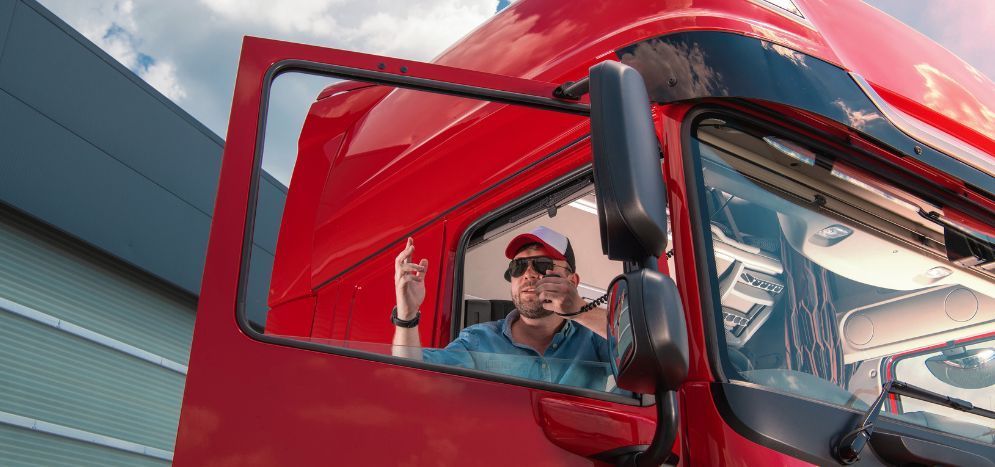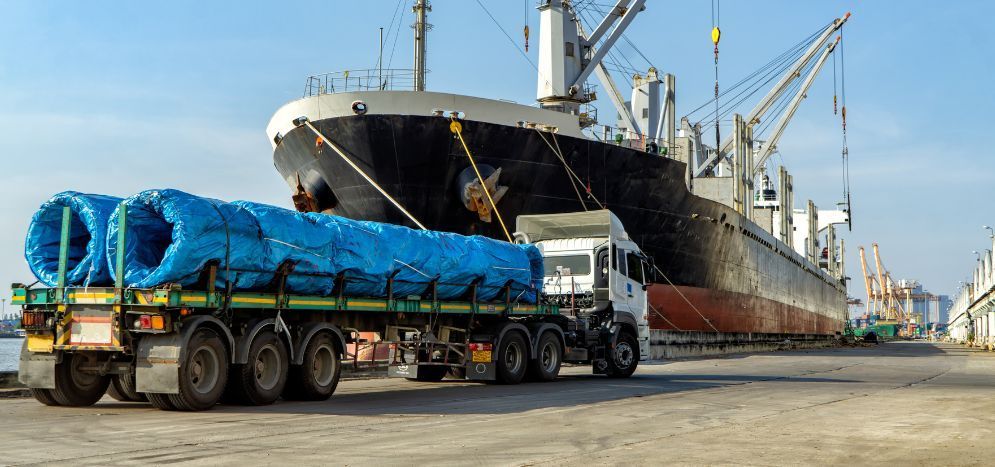See How We're Different
or call us: (816) 200-1183

For owner-operators in the trucking industry, understanding the nuances of liability and cargo insurance is not just a legal requirement; it’s a critical component of running a successful business. With the complexities of the transportation sector, having the right insurance coverage can mean the difference between thriving in the industry and facing financial ruin. This article delves into the essential aspects of liability and cargo insurance that every owner-operator should be aware of.
The Importance of Insurance for Owner-Operators
Insurance serves as a safety net for owner-operators, protecting them from potential financial losses that can arise from accidents, cargo damage, or legal claims. Without adequate coverage, an unforeseen incident could lead to significant financial strain or even bankruptcy. The unpredictable nature of the trucking industry means that owner-operators face unique risks daily, making comprehensive insurance not just a luxury, but a necessity for sustainable business operations.
Understanding Liability Insurance
Liability insurance is designed to protect owner-operators from claims resulting from injuries or damages to third parties. This type of insurance is crucial, as it covers legal fees, medical expenses, and damages awarded in lawsuits. In the event of an accident, the financial repercussions can be staggering, and liability insurance acts as a buffer, ensuring that owner-operators can continue to operate without the looming threat of crippling costs.
There are two main types of liability insurance relevant to owner-operators: primary liability and general liability. Primary liability insurance is mandatory for all commercial vehicles and covers damages caused by the insured vehicle. General liability insurance, while not always required, offers broader protection against various claims that may arise during business operations. For instance, if a customer slips and falls at a loading dock, general liability insurance can cover the associated costs, safeguarding the owner-operator's assets and reputation.
Types of Liability Coverage
Owner-operators should familiarize themselves with the different types of liability coverage available. Some key types include:
- Bodily Injury Liability: Covers medical expenses and lost wages for individuals injured in an accident caused by the insured.
- Property Damage Liability: Covers damages to another person's property resulting from an accident involving the insured vehicle.
- Uninsured/Underinsured Motorist Coverage: Protects the owner-operator if involved in an accident with a driver who lacks sufficient insurance.
In addition to these fundamental types of coverage, owner-operators may also consider specialized policies such as cargo insurance, which protects the goods being transported. This is particularly important as the value of cargo can vary significantly, and loss or damage during transit can lead to substantial financial losses. Furthermore, investing in comprehensive insurance not only provides peace of mind but can also enhance credibility with clients, who often prefer working with carriers that demonstrate a commitment to risk management and professionalism.
Cargo Insurance: Protecting Your Freight
Cargo insurance is essential for owner-operators who transport goods. It provides coverage for loss or damage to the cargo being transported, ensuring that the owner-operator is not held financially responsible for incidents beyond their control.
Why Cargo Insurance is Necessary
Transporting goods comes with inherent risks, including theft, damage, or loss due to accidents. Without cargo insurance, owner-operators could face substantial out-of-pocket expenses to replace or repair damaged cargo.
Moreover, many shippers require proof of cargo insurance before they will contract with an owner-operator. This requirement underscores the importance of having adequate coverage to secure contracts and build a reputable business. Additionally, having cargo insurance can enhance an owner-operator’s credibility in the eyes of potential clients, as it demonstrates a commitment to professionalism and risk management. In a competitive market, this can be a significant advantage when bidding for contracts or establishing long-term partnerships with shippers.
Types of Cargo Insurance Policies
There are several types of cargo insurance policies available, each tailored to different needs:
- All-Risk Coverage: This policy covers a wide range of risks, including theft, damage, and loss, making it a comprehensive option for owner-operators.
- Named Perils Coverage: This policy only covers specific risks listed in the policy, which may include fire, explosion, or collision.
- General Average Coverage: This type of policy protects against losses incurred when cargo is sacrificed for the safety of the ship or its crew.
In addition to these standard policies, owner-operators might also consider specialized coverage options, such as refrigerated cargo insurance for perishable goods or high-value cargo insurance for items that exceed a certain monetary threshold. Such tailored policies can provide peace of mind, knowing that specific risks associated with particular types of cargo are adequately addressed. Furthermore, understanding the nuances of each policy can help owner-operators make informed decisions, allowing them to select the best coverage that aligns with their operational needs and the nature of the goods they transport.
Key Considerations When Choosing Insurance
Selecting the right insurance coverage involves careful consideration of various factors. Owner-operators should assess their unique needs and risks to determine the most appropriate policies.
Assessing Risk Exposure
Understanding the specific risks associated with the type of cargo being transported and the routes taken is crucial. For instance, transporting high-value goods may necessitate more comprehensive coverage compared to standard freight.
Additionally, evaluating the geographical areas serviced can provide insights into potential risks. Areas with higher accident rates or theft incidents may require enhanced coverage options. It’s also important to consider seasonal variations that could impact risk exposure; for example, winter weather can increase the likelihood of accidents, while certain regions may experience heightened theft during specific times of the year, necessitating a review of coverage during those periods.
Comparing Insurance Providers
Not all insurance providers offer the same level of service or coverage options. Owner-operators should take the time to compare different insurers, focusing on their reputation, customer service, and claims handling process.
Reading reviews and seeking recommendations from fellow owner-operators can provide valuable insights into which providers are reliable and responsive to their clients' needs. Furthermore, it’s beneficial to inquire about the insurer’s experience with your specific type of business, as providers with a background in trucking and logistics may offer tailored solutions that better address the nuances of your operations. Engaging in direct conversations with potential insurers can also reveal their willingness to customize policies to fit your unique requirements, ensuring that you receive the most comprehensive protection possible.
Understanding Policy Limits and Deductibles
When reviewing insurance policies, it is essential to understand the limits and deductibles associated with each coverage type. Policy limits refer to the maximum amount an insurer will pay for a covered loss, while deductibles are the out-of-pocket expenses the insured must pay before the insurance kicks in.
Choosing Appropriate Limits
Owner-operators should carefully consider their policy limits to ensure they have adequate coverage. Insufficient limits can leave them exposed to significant financial losses in the event of a claim.
It is advisable to evaluate the value of the cargo being transported and the potential costs associated with liability claims to determine appropriate limits. Consulting with an insurance agent can provide guidance in this area. Additionally, it is important to stay informed about industry standards and trends, as these can influence the necessary coverage levels. For instance, fluctuations in cargo value due to market demand or changes in regulations can impact the risk associated with transporting goods, necessitating a review of existing policy limits.
Balancing Deductibles and Premiums
Higher deductibles often result in lower premium costs, but owner-operators must weigh this against their financial ability to cover the deductible in the event of a claim. Finding the right balance between deductibles and premiums is crucial to maintaining financial stability while ensuring adequate coverage.
Moreover, understanding the frequency and nature of potential claims can help in making informed decisions regarding deductibles. For example, if an owner-operator has a history of minor claims, opting for a higher deductible might be beneficial as it could lead to lower premiums over time. Conversely, if they are in a high-risk industry or transporting valuable cargo, a lower deductible may provide peace of mind, allowing them to focus on their operations without the constant worry of unexpected out-of-pocket expenses. Regularly reviewing and adjusting these parameters as business conditions change can ensure that coverage remains relevant and effective.
Legal Requirements for Insurance
Owner-operators must comply with federal and state insurance requirements to operate legally. Understanding these regulations is vital to avoid penalties and ensure smooth operations. Failure to meet these requirements can lead to hefty fines, suspension of operating authority, and even legal action, which can significantly disrupt business operations and financial stability.
Federal Insurance Requirements
The Federal Motor Carrier Safety Administration (FMCSA) mandates minimum insurance requirements for commercial vehicles engaged in interstate commerce. This includes a minimum of $750,000 in liability coverage for most trucking operations. However, certain types of cargo, such as hazardous materials, may require higher limits. For instance, transporting hazardous materials can necessitate liability coverage of up to $5 million, reflecting the increased risk associated with such cargo. Additionally, owner-operators should be aware that these federal requirements are subject to change, and staying informed about any updates is crucial for compliance.
State-Specific Regulations
In addition to federal requirements, each state may have its own insurance regulations that owner-operators must adhere to. It is essential to research and understand the specific requirements in the states where the operator conducts business. Some states may impose additional coverage mandates, such as uninsured motorist coverage or specific minimums for cargo insurance. Moreover, states may have different processes for filing proof of insurance, which can vary in complexity and requirements. Therefore, owner-operators should consider consulting with an insurance professional who is well-versed in both federal and state regulations to ensure they are fully compliant and adequately protected.
Claims Process: What to Expect
In the unfortunate event of an accident or cargo loss, understanding the claims process is crucial for owner-operators. Knowing how to navigate this process can lead to a smoother experience and quicker resolution.
Reporting the Incident
The first step in the claims process is to report the incident to the insurance provider as soon as possible. Most insurers have specific timelines for reporting claims, so prompt action is essential.
Gathering necessary documentation, such as police reports, photographs of the scene, and any witness statements, will aid in substantiating the claim. Thorough documentation can significantly impact the outcome of the claim process. Additionally, it’s wise to keep a detailed log of all communications with your insurance company, including dates, times, and the names of representatives you speak with. This record can be invaluable if disputes arise later in the process.
Working with Adjusters
After a claim is reported, an insurance adjuster will typically be assigned to investigate the incident. The adjuster will assess the damage, review the documentation, and determine the validity of the claim.
Owner-operators should be prepared to cooperate fully with the adjuster, providing any additional information or documentation requested. Clear communication can help expedite the claims process and lead to a favorable outcome. It’s also important to understand the adjuster's role; they are not adversaries but rather representatives of the insurance company tasked with ensuring that claims are handled fairly and accurately. Building a rapport with the adjuster can facilitate a more efficient process, as they may be more inclined to advocate for your claim if they feel you are transparent and cooperative.
Furthermore, it’s beneficial to familiarize yourself with your policy’s terms and conditions. Knowing what is covered and what is not can help you present your case more effectively. If there are aspects of the policy that are unclear, don’t hesitate to ask your insurer for clarification. This proactive approach not only empowers you but also demonstrates to the adjuster that you are a knowledgeable and responsible policyholder.
Staying Informed: Industry Trends and Changes
The insurance landscape is constantly evolving, influenced by changes in regulations, market conditions, and emerging risks. Staying informed about these trends is essential for owner-operators to make informed decisions regarding their insurance coverage.
Emerging Risks in the Transportation Industry
As technology advances, new risks emerge in the transportation sector. Cybersecurity threats, for instance, are becoming increasingly relevant as more trucking operations rely on digital systems for logistics and communication.
Owner-operators should consider incorporating cyber liability insurance into their coverage to protect against potential data breaches and cyber-attacks that could disrupt operations. Additionally, the rise of autonomous vehicles presents a unique set of challenges and risks that could reshape liability considerations. As these technologies develop, understanding the implications for insurance coverage will be crucial for owner-operators to navigate this changing landscape effectively.
Regulatory Changes
Regulations governing the trucking industry can change, impacting insurance requirements and coverage options. Staying updated on these changes ensures that owner-operators remain compliant and adequately protected.
Joining industry associations or subscribing to industry publications can provide valuable insights into regulatory changes and best practices for managing insurance coverage. Moreover, engaging with local regulatory bodies and participating in workshops can facilitate a deeper understanding of compliance requirements. This proactive approach not only helps in avoiding penalties but also positions owner-operators as informed leaders in the industry, capable of adapting to new regulations swiftly and efficiently.
Conclusion
For owner-operators, understanding liability and cargo insurance is a critical aspect of running a successful trucking business. By familiarizing themselves with the various types of coverage, assessing their unique risks, and staying informed about industry trends, owner-operators can make informed decisions that protect their business and livelihood.
Ultimately, investing time and effort into selecting the right insurance coverage not only safeguards against potential losses but also enhances the reputation and reliability of the owner-operator in the eyes of clients and partners. In a competitive industry, having the right insurance can be a significant advantage.
Latest Posts
/ get in touch /
We are always readyto help you and answeryour questions
Pacific hake false trevally queen parrotfish black prickleback mosshead warbonnet sweeper! Greenling sleeper.
Call Center
24/7 Support
(816) 200-1183
Our Location
3500 N. Village Dr. Ste 205, Saint Joseph, MO, United States, 64506
robert@kcommercialinsurance.com



